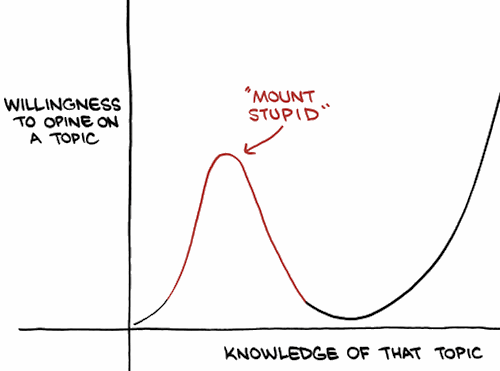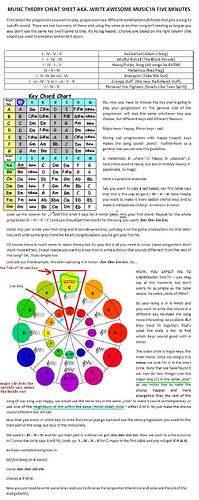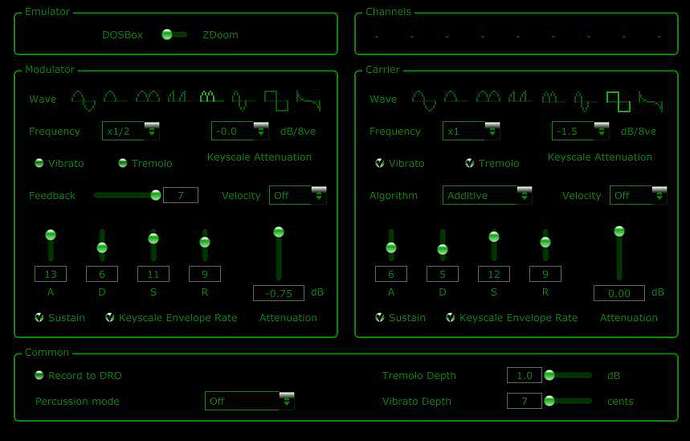Learn how to master sampling with Jaisu
Real Talk: Sepalcure - Travis Stewart and Praveen Sharma discuss the benefits of constraints in the creative process.
Remembering America’s first dubstep night with Kode9, FaltyDL, Mala, Martin Clark, Joe Nice, Dave Q, and more
http://daily.redbullmusicacademy.com/2016/05/nightclubbing-dub-war
More Nomine tips
-
High/low cut every part of a sound you don’t need to free up as much space in the tune as possible. Especially in the low end.
-
If you’re struggling to find that special something to really finish a track/song, if you know what key it’s in you could use a resource like mixed in key DJ software to find something in your sample collection that is musically aligned with your creation, might be the final piece of the jigsaw…(specially handy if you’re more of a sound design type and not from music theory background)…
-
When using vocal samples/ self recorded vocals, make sure they are convincing. You need to hear the emotion, so using vocalists, actors /actresses etc that conduct this is important.
-
Sound design tribe: bounce down an elaborate tape delay tail, pitch it down, loop it and you have an ambient texture/drone depending on pitch. Additional processes such as reverb and filters can help add to the “flavour”. The same can be done with reverb tails, but I like the movement and character of a delay tail
Free 909 kicks - https://soundcloud.com/nominesound/nomines_909_kicks
Emperor - How I Made ‘Monolith’
Discussing Emulation With Mefjus
http://www.fabriclondon.com/blog/view/in-depth-discussing-emulation-with-mefjus
More random tips
-
Don’t keep constantly collecting new synths and plug-ins, get a few solid ones and learn them inside out. You’ll be able to do a hell of a lot more by knowing a few plugins like the back of your hand, than you would by knowing a little bit about a bunch you have installed.
-
May be something only i do but i find if my drums are lacking groove, I try slowing them down to say 90 through 130 and see if they sounds good at that tempo. If it doesn’t have that “funk” or rhythm at a slower tempo, they aren’t going to sound any better at 160+. Seems to help when i can’t place what’s wrong with the pattern that is making it sound stiff or whatever… going on the theory that I’ve noticed a good tune sped up or slowed down still sounds pretty good generally when i’ve played round with 45’s at 33rpm instead … some actually sound awesome slower.
-
if there’s anything we can learn from the aphex twin soundcloud dump it’s to bust out track after track after track. come up with an idea, execute it to completion and move on quickly to the next one. before you know it song writing will become second nature. after all that’s what it is all about. creating songs and creativity.
-
Get yourself for the start good genre related samples, this will save a lot time and struggle ! Use at best a sampler to work with samples. Then watch some tutorials about effecting techniques like layering, serial and parallel processing and you should be good to go.
-
Aim to finish the arrangement within an hour or so of starting a track, have a template with sidechains for the kick/snare and send FX etc to take this easier. Have a rough structure labelled out in your template (into, drop 1 drop 2 where the fills are etc). If you find that you can’t arrange that fast then put other artists tracks in your sequencer and rip off their structure but try not to rely on that too much.
-
If you don’t finish the basic arrangement fast you will never finish a track. You can spend ages messing about with the details later but the faster you can get the basic structure down from beginning to end the more likely you are to finish the track.
-
Don’t get stoned and try to make tracks unless you are Ed Rush and Optical. Some people might be able to do it but in my experience it always fucks up. If you want to make some shit while you are high make sounds to use in future compositions. Makes it a lot more fun and you might actually get something you can use.
-
Don’t be fucking lazy. Don’t let modern workflows detriment your work ethic.
-
It pays to take the long way around. Tools that make something easy can also make you look over the details that they automate. In the tracker era, electronic music had a lot of variation, because programming a complex beat was barely any more work than a simple one. To sequence at all, you had the parameters of every note right in front of you, so you might as well have tweaked little variations everywhere. This workflow, while painstaking by modern standards, enforced that discipline amongst producers to go that extra length. And that can be lost with modern DAWs; it’s cool that you can build up the basic structure of a track in five minutes now, but this power very often leads to bad habits.
-
It’s not worth it to compromise the end product even a little bit in order to do a lot less work. Very few shortcuts are without compromise. One good track that took a hundred hours to make is worth more in the end than ten decent tracks that took ten hours each, and putting the work in is a big part of the difference between the two.
-
Develop work ethic if you don’t have it. Put in the time to fully realize your ideas. But if you create an idea and it just isn’t working, move on to the next idea. Don’t force something that doesn’t work.
-
Try and ensure tracks are fun and not a chore. Take inspiration from everything and anything - if an element makes you ‘bop’ your head / dance in the chair - it’s working.
-
Do most sound design separately to arranging. Make that sick, moving Reece bass and save the patch. Resample, hurt that bassy slut a bit more. When you like rename audio(sik reese bass bruv) and save to your samples folder. Maybe load in a sampler, save that patch too. Maybe even save in a rack of your building if know what kind of shit you wanna mix it with(filter sweeps,chorus or verb on top.
-
Do this with break processing, patch building, instrument and fx chains, drum layering, etc.
-
Song production sessions are tempting to stop and start programming the phat bass patch you want. And you will do it and end up looking at a sporadic amount of audio and midi and nothing like a song. Get the ideas down. Don’t go anal over 4 bars for ten hours. Whack out a good 64 bars so you can program build build and drops. Sometimes it’s good to mix down while you go. It’s not if you end up with an unrecognisable mash of broken musical dreams.
-
Take regular breaks and don’t tell your friends. Only computer musicians care about computer music. Find wiser ears that provide honest feedback. Learn how everything else works. Music theory, science of sound’ how speakers work’ how old hardware worked. Also listen to music
you haven’t hear of. Seek it out online. As for samples, my favourites come from charity shops. Lastly. Do you love doing it? Keep the love alive more than anything else. Some of those people watch eastenders. They have nothing to include in society. You do. Get on it.
10 Reasons Not To Give Up


Stay off forums. Even this one. Your outlook on music will be much more positive when it is not influenced by elitists who have managed to bring cynicism into something that is supposed to be fun.
This was not America’s first dubstep night…
I remember meeting Zed Bias there at Rothko one night in 2005 though…
In this discussion Matthew Herbert, Phoebe Kiddo, Young Guru and James Holden uncover the causes of (and solutions to) creative blocks. Hear from these artists how they get stuck, how they get unstuck again, and how they ultimately manage to get music made. Discussion moderated by Dennis DeSantis, author of Making Music: 74 Creative Strategies for Electronic Music Producers.
https://www.dailymotion.com/video/x4bgkzo_dmx-krew-boiler-room-collections_music
Boiler Room visited influential producer DMX Krew aka Ed DMX for an afternoon of chat and music selections in the latest episode of their Collections interview series.
Good post. Disagree with a few points but tbh that’s because I’m reluctant to admit I’m a waceman
Nice beat, but he’s got far too much already made when he starts this so it’s got a bit of a paint-by-numbers feel.
Pretty solid, though seeing him do with this a keyboard rather than an MPC is a little grating.
[quote]Marshalling fierce DIY ethics, chemical excess and pounding grooves, London acid
techno was the bastard child of the mid-’90s UK underground, fuelling debauched squat raves with punk attitude and squelchy 303s. Harry Sword speaks to the founders of this belligerent force[/quote]
http://daily.redbullmusicacademy.com/2016/06/london-acid-techno-feature
33 classic techno creation tips - http://www.musicradar.com/tuition/tech/33-classic-techno-creation-tips-154667
Vaporwave, Retrowave, other Neo-80s Genres
I’m curious as to how you all would approach this. If you hate these
genres and this sound, this isn’t the thread for you - but I’m not a
huge fan of a lot of it myself. Mostly, I’m interested in what it does
very well, creating such a realistic time-machine experience.
Specifically, most of this stuff is made 100% ITB, often with few or no
samples - yet it still often comes out sounding convincingly non-modern -
on way more levels than just “throw a tape saturator on there”.
There’s of course no one way, no one VST or sample pack to have the
neo-80s sound - so tell me, how would you go about doing it? What
techniques, plugins, etc. would you employ in composing this sort of
stuff? What tools and techniques would you avoid? Obviously there are
shit tons of arpeggiators, and lots of very simple monosynth patches,
but it’s more than that.
I particularly like this ambient drone sort of album, and want to better
understand how it sounds so distinctly retro with so little actually
going on - since I know enough to tell it’s a number of factors coming
together. Skip around a bit, as it changes styles and techniques
throughout.
One of the few vaporwave albums I can actually stand, as a clearer
example of the kind of stylistic effect I’m referring to - which as far
as I know is 100% ITB. It’s super heavy on sampling old music, which is a
lot of the effect, but plenty of this stuff is done without sampling,
and gets the same effect.
you just need an 80’s hardware polysynth, reverb and a sidechaining compressor.
vaporwave is sampled smooth jazz and 90’s elevator music slowed down with a lot of reverb and delay
The Macross example is pretty much all old funk samples from the 70ies-80ies.there’s one or 2 sounds in there which i recognise from the korg legacy wavestation and some of the synth sounds are undeniably digital,trying to be vintage.checkout arturia and the korg legacy collection
Your 1st example is 100% digital (missing that haze from either recording to or using samples from a VHS/cassette tape).i guess what it kind of has in common is the ambient wash and pseudo tape delays.you can prettt much make albums of this shit with the valhalla dsp stuff especially uebermod and vintage-verb,maybe a bit of shimmer too.an ambient/vaporwave diy kit (if ya like)
forgot to mention inversions and sus chords=80ies.add 7ths and 9ths and you have that pseudo-jazz,retro-anime sound going
JuceOPLVSTi is a very good free VST emulating the OPL chip in Ad Lib/Soundblaster cards. It loads patches ripped from the actual games.
https://bsutherland.github.io/JuceOPLVSTi/
Edit:on your ambient example…to make up for the absence of the "haze"i
mention earlier,the guy/gal/thing has ran the entire mix through a
frequency shifter…kinda like what BoC do to get that kind of
"sea-sick"stereo effect on certain elements (e.g sunshine recorder on
Geogaddi)
ive been watching videos of zaytoven making beats
this is defo more SAUCE than source
cool how he leaves the metronome on even when hes far along in building the track.
Seen it, still love it.
His ASCII cyberzine is well worth a read;
http://www.legowelt.org/cyberzine.htm
Production tips buried deep. Also includes plans on how to build a reverb in the bath.
theres an entry in one of the issues about music loops and angels that I love, gotta hunt that down again. The whole thing is so great
some really interesting insights in the Q&A part of the article, just skip the lame pitchfork journo intro

Drum Machine Sample Database:
Goldbaby Free Samples:
Free MS-20 Drum Samples (Wave Alchemy):
deenotech’s Mini Pack:
https://www.sendspace.com/file/3ikl3h
https://drive.google.com/file/d/0B03oDsnVuW5Db081c08xZ2VfXzA/view
Trent Reznor interview talking the gear used on TDS;
http://www.theninhotline.net/archives/articles/key394a.shtml
Inspiration:
I’ve just listened to this. Really good! I have been receiving the emails from TapeOp about it and have been meaning to get to it.

![2814 - 新しい日の誕生/Birth of a New Day (Full Album) [HD]](https://img.youtube.com/vi/F9L4q-0Pi4E/maxresdefault.jpg)






